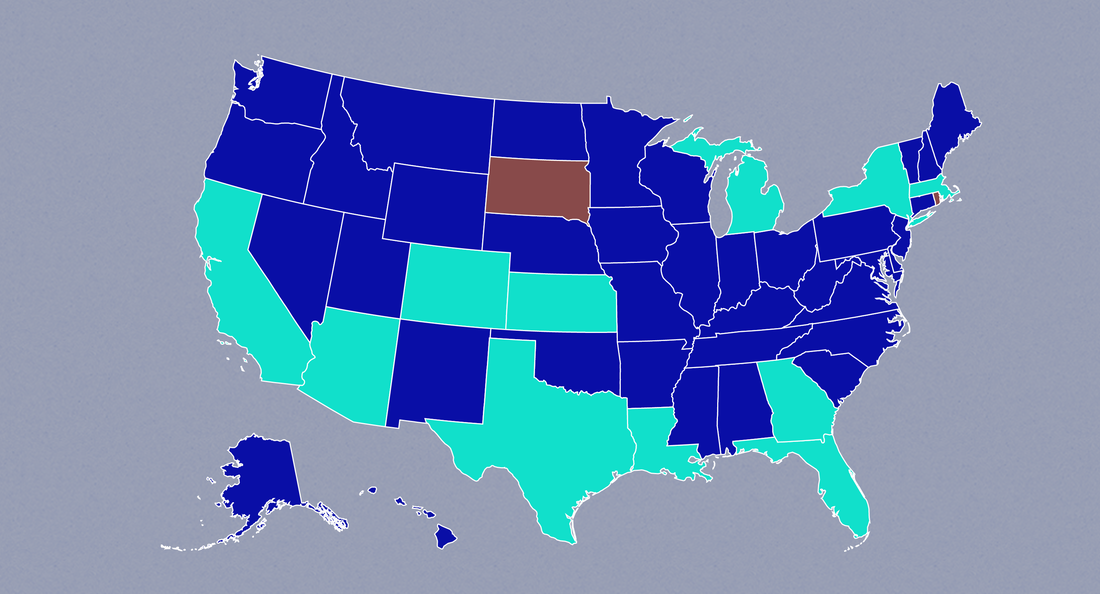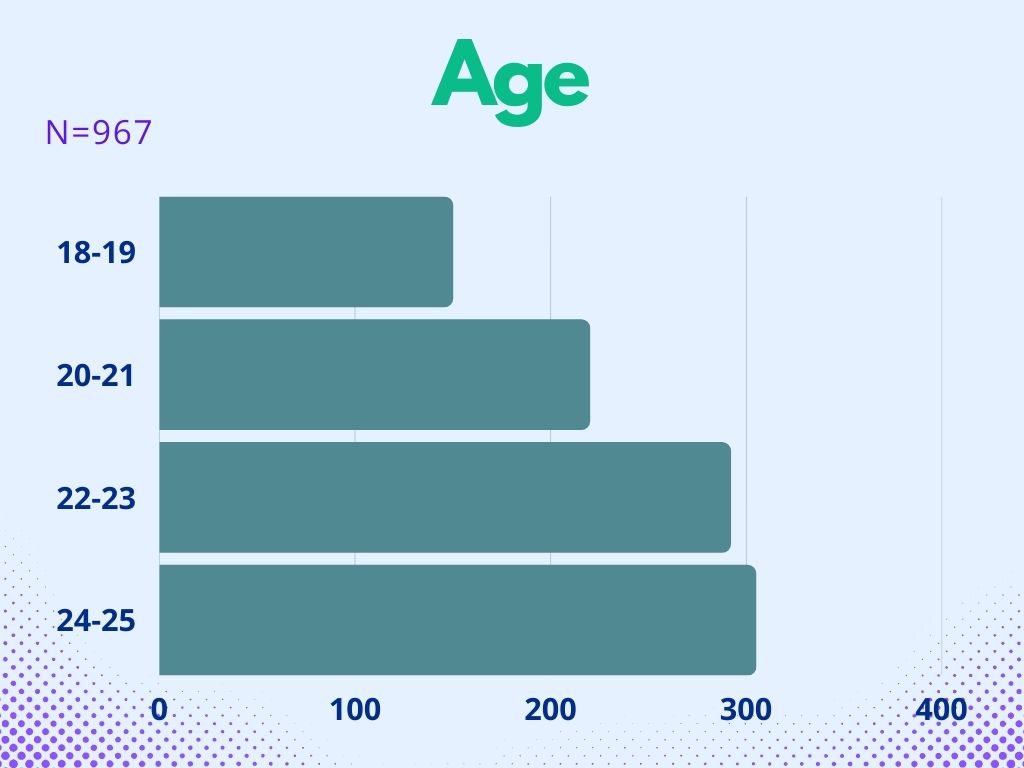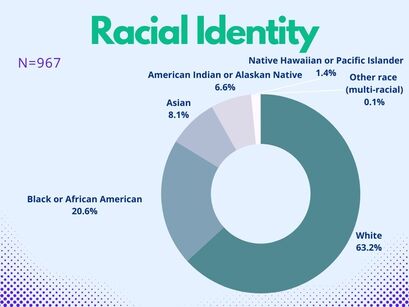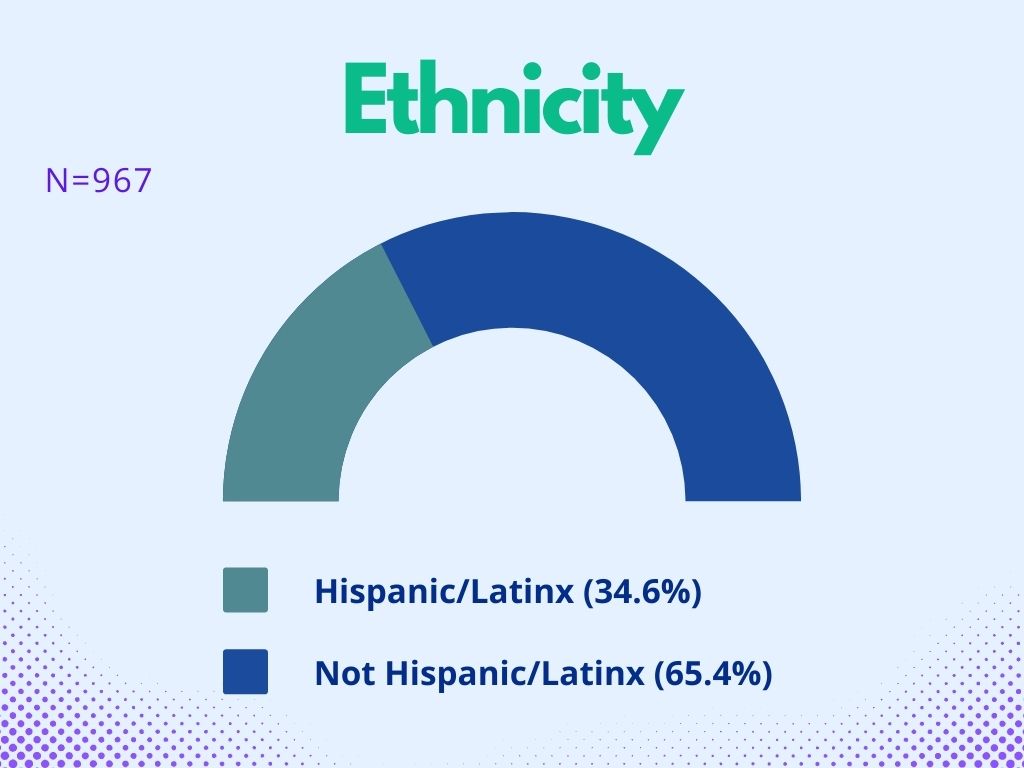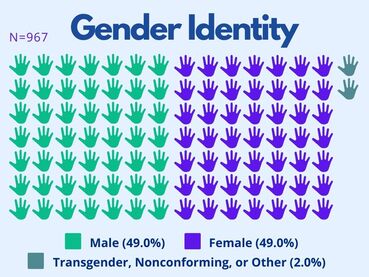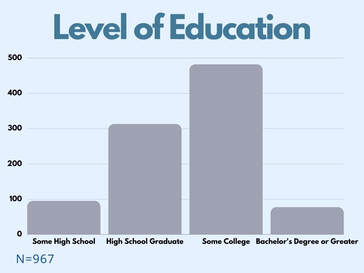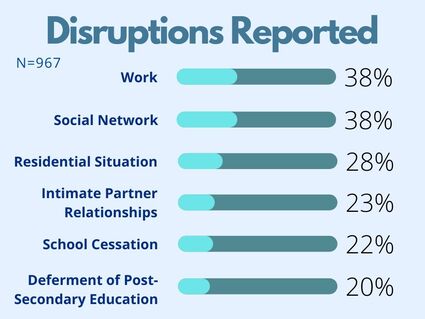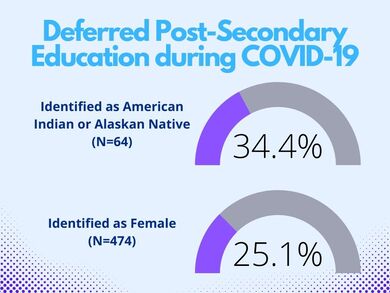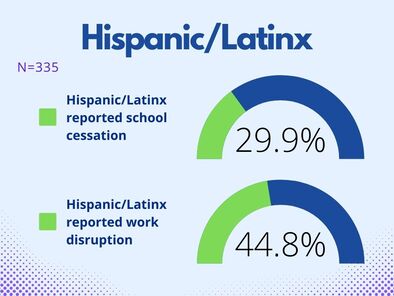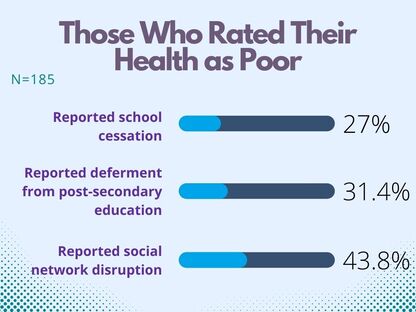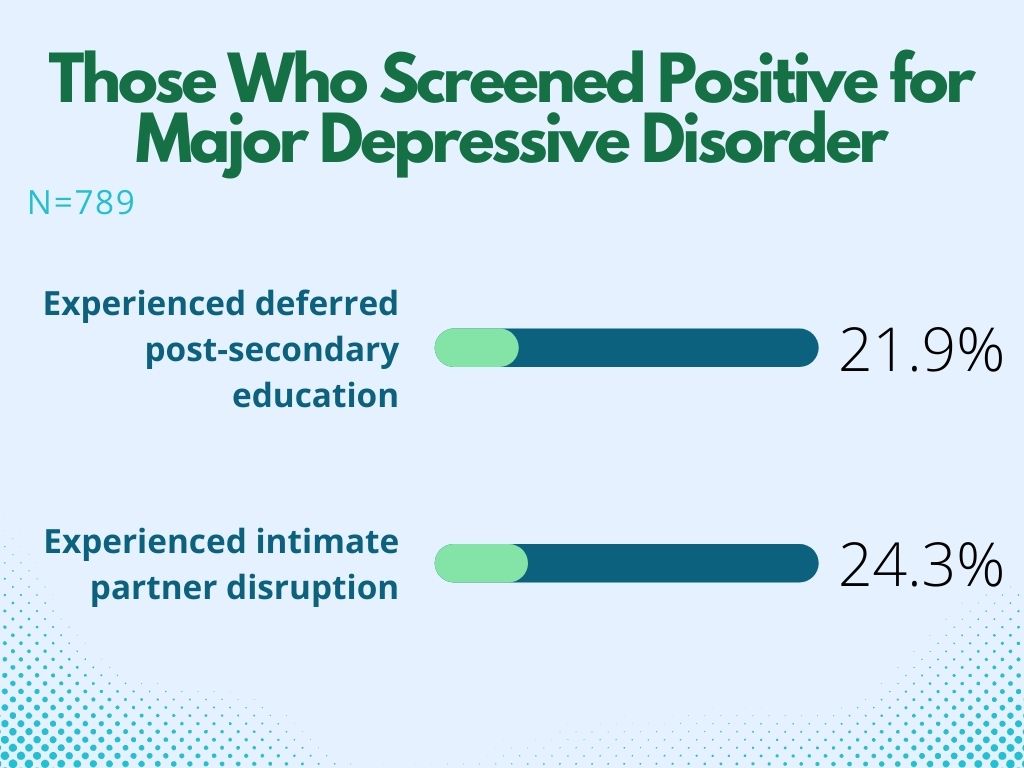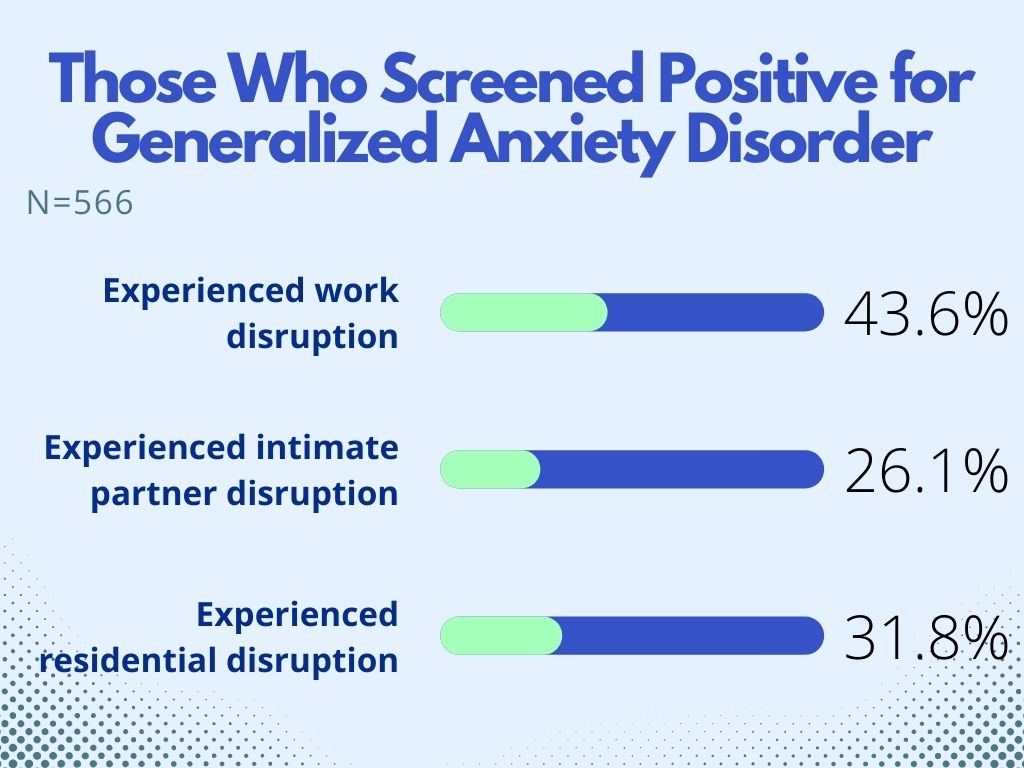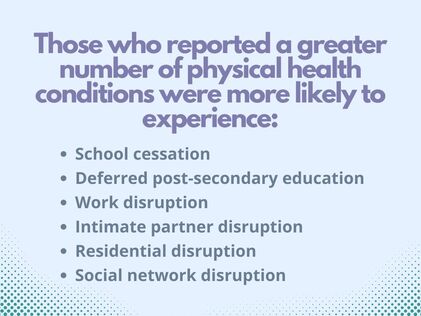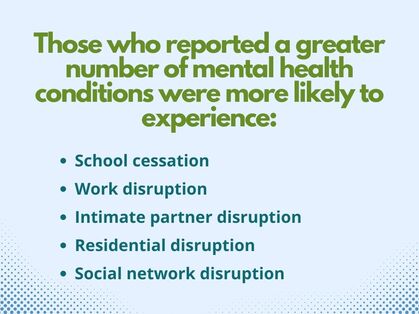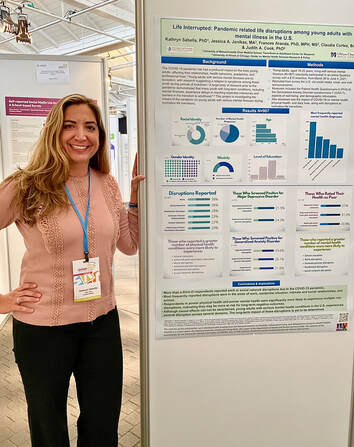Why is this research being done?We want to learn how young people with mental health conditions are doing as they deal with the COVID-19 pandemic. Our study has 2 phases (learn more here).
This phase was a national online survey of young adults about their personal experiences, emotional wellness, physical health, coping, and missed milestones during the pandemic. |
What do we hope to learn from the national survey?
|
Who responded to our survey?
Survey respondents were US residents aged 18 to 25 years, with a serious mental health condition. Survey measures included self-rated mental and physical health, pandemic-related disruptions, coping and resiliency, number of psychiatric diagnoses, number of physical health conditions, access to mental health and medical services, recent mental health symptoms, substance use, and demographic information. Also assessed was the impact of COVID-19 on mental health, physical health, and daily life, along with disruptions to normative life transitions.
The Qualtrics survey was available from March 26 to June 4, 2021.
The Qualtrics survey was available from March 26 to June 4, 2021.
Preliminary results:
A look at disrupted milestones for young adults with mental health conditions
Young adult respondents reported that the COVID-19 pandemic had a significant impact on their mental health, physical health, and daily lives. They also indicated that the virus and mitigations to contain transmission disrupted common life events.
Poorer mental and physical health during the pandemic also were associated with disruptions in typical life experiences for this age group.
Survey results presented at the International Association for Youth Mental Health Conference!
|
Keep checking back as we share additional survey results!
How will ongoing findings from this survey be helpful?
We’ll learn how a large group of young people with mental health conditions across the country feels about their health, wellness, challenges, successes, and more. We’ll use these results to recommend services and policies to improve the lives of young people.
This project is a collaboration with the Transitions to Adulthood Center for Research at the University of Massachusetts Medical School.
What if I need help during COVID?
|
We understand that this continues to be a difficult time for many people. If you would like someone to talk with, all U.S. states offer Warm Lines operated by trained staff. Find a warm line.
If you are in a crisis, you can contact the National Suicide Prevention Lifeline in your state. Find the number for my state. |

